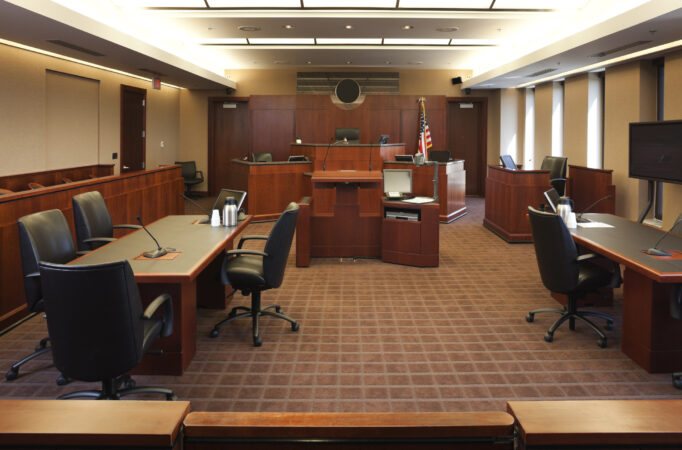Litigation
Tincher Opinion Has Residual Effects on Pennsylvania Products Liability Law in the recent Urbieta Case.
How much has the recent Tincher v. Omega Flex, Inc., Opinion changed the landscape of products liability law in Pennsylvania? So far, this opinion has resulted in the Superior Court of Pennsylvania upholding the dismissal of a manufacturer of a product involved in a serious injury even though the product was deemed defective by the plaintiff’s experts. This decision was made in the recent Urbieta v. All-American Hose, LLC, et. al., case. 2019 WL 3385192 (Pa. Super. 2019).
The incident giving rise to the Urbieta Opinion resulted from Eric Urbieta operating an industrial hose which struck him causing significant brain and shoulder injuries. Specifically, Mr. Urbieta was working as a temporary employee for All-American Hose, LLC (“AAH”). At the time of the incident, he was engaged in hose normalization, a process in which steam is injected into a hose to test for leaks. This process involved, among other products and tasks, the clamping of hose fabric between an adapter and a bell and cable system. Additionally, the hose itself would be stretched out on a non-motorized roller table. Defendant Hagerty manufactured the adapter and Defendant Lewco manufactured the roller table. Prior to the accident, Mr. Urbieta noticed an issue with the bell and cable system he was going to use for the normalization process. As a result, a co-worker retrieved another bell and cable system which was smaller than the original. Regardless of the change in this system, Mr. Urbieta proceeded with the normalization process. Once the steam coursed through the hose, it detached from the bell and cable system and the adapter causing the hose to violently whip Mr. Urbieta, thus causing the injuries described above.
The Urbietas eventually filed suit against the various named defendants, including Hagerty and Lewco, alleging negligence, strict liability, breach of warranty, and loss of consortium. Discovery ensued which revealed several interesting facts. Importantly, AAH investigated the incident and found that none of the component parts of the normalization process had failed. Instead, the investigation revealed that the adapter and bell and cable system simply slipped off the end of the hose. AAH essentially attributed the accident to various user errors. As expected, the Urbieta’s experts came to a different conclusion. They found that “by all accounts, the bell and cable system that was used to secure the normalizing hardware to the hose failed.” The Urbieta’s experts also specifically concluded that there were shortcomings with the Lewco roller table and the Hagerty adapter.
Several defendants eventually moved for summary judgment, including Lewco and Hagerty. The Court of Common Pleas granted these Defendants’ motions for summary judgment. The Urbietas appealed the trial court’s grants of summary judgment, thus prompting the review by the Superior Court of Pennsylvania in the Urbieta Opinion. On appeal, the Superior Court agreed to review the following issues: (1) whether the trial court erred in finding that the Urbietas failed to produce evidence that Hagerty’s adapter failed; (2) whether the trial court erred by deciding issues of fact in holding that Lewco was not aware of the use of its table in the normalization process and therefore was not required to affix proper warnings to it; and (3) whether the trial court erred by deciding issues of fact in holding that Lewco was not required to supply proper guards for its tables.
In addressing issue one, the Urbieta Court cited to Tincher, and the Supreme Court of Pennsylvania’s determination that Pennsylvania remains a Second Restatement jurisdiction. Under the Second Restatement framework, the Urbieta Court analyzed the trial court’s analysis of the expert opinions offered about the Hagerty adapter at issue. Those experts analyzed the drawings for the adapter, and indicated that those drawings were defective for several reasons. The Urbieta Court, citing to the trial court’s reasoning, indicated that although these drawings were defective, the Urbieta’s experts do not indicate that any of the imperfections in the drawings actually caused the adapter to fail. The Court further explained that, to the contrary, the experts specified that the bell and cable system used to secure the adapter to the hose was the component that failed. For those reasons, the trial court determined, and the Urbieta Court agreed, that the Urbieta’s claims based on negligence, products liability, and warranty against Hagerty all failed for lack of evidence proving proximate cause. In citing to the Hagerty’s appellate brief, the Urbieta Court agreed that “there exists no genuine issue of material fact for a jury to decide. Nowhere in either of the Urbieta’s expert reports does the expert say that the Hagerty’s adapter caused Mr. Urbieta’s accident. Reasonable minds cannot differ. Summary judgment was appropriate.”
In addressing issue two concerning Lewco’s awareness of the use of its table in the normalization process and lack of a warning, the Urbieta Court provided a similar analysis and conclusion. Specifically, the Urbieta Court found that the Urbietas failed to establish that Lewco had a duty to warn and also failed to prove that the lack of warnings regarding weight/force capacity of the table proximately caused Mr. Urbieta’s injuries. The Urbieta Court specified while quoting Lewco’s brief that although the Urbietas asserted that Mr. Urbierta would not have been injured if the table did not break down during the incident, the Urbietas did not cite to any evidence to support this proposition. The Urbieta Court further explained that a review of the Urbietas’ expert reports indicated they provided opinions concerning Lewco’s failure to provide or recommend a guarding system for use on their product, not Lewco’s failure to warn AAH of the table’s weight/force capacity which then proximately caused Mr. Urbierta’s injuries. The Urbieta Court then upheld the trial courts grant of summary judgment to Lewco on these bases.
The third and final issue addressed in the Urbieta Opinion concerning the trial court’s determination that Lewco was not required to supply proper guards for its tables, was deemed waived. The Urbieta Court made this determination based on the Urbieta’s failure to raise this argument at the trial court stage. As such, the Urbieta Court did not address the merits of this issue.
The Urbieta Court’s determination that manufacturers of products deemed defective by expert evidence can receive dismissal at the summary judgment stage due to lack of causality evidence may be foreshadowing a changing products liability landscape in Pennsylvania. This is a change that arguably favors the manufactures of these products. A solution for prospective plaintiffs may lie in the structuring and wording used in their expert reports.
About Us
The litigation attorneys at Houston Harbaugh, P.C., are accomplished business trial lawyers, providing comprehensive support in litigation across a broad spectrum of matters throughout Pennsylvania, West Virginia, Ohio and other jurisdictions upon a special admission basis. Our clients are regional and national small, medium and large companies and individuals who seek well planned and aggressive, but cost effective litigation. We counsel, we budget, we have a deep bench, we act quickly when needed and we have experienced trial lawyers who know the courts and bench. We serve regularly as local counsel for some of the largest law firms in the country when they have matters in this region.

Henry M. Sneath - Practice Chair
Co-Chair of Houston Harbaugh’s Litigation Practice, and Chair of its Intellectual Property Practice, Henry Sneath is a trial attorney, mediator, arbitrator and Federal Court Approved Mediation Neutral and Special Master with extensive federal and state court trial experience in cases involving commercial disputes, breach of contract litigation, intellectual property matters, patent, trademark and copyright infringement, trade secret misappropriation, DTSA claims, cyber security and data breach prevention, mitigation and litigation, probate trusts and estates litigation, construction claims, eminent domain, professional negligence lawsuits, pharmaceutical, products liability and catastrophic injury litigation, insurance coverage, and insurance bad faith claims.

Samuel H. Simon - Practice Chair
As co-chair of Houston Harbaugh’s Litigation Group, Sam focuses his practice on commercial/business litigation. Sam regularly represents clients in the construction, manufacturing, oil and gas, and wholesale/retail/ distribution industries, as well as individuals in matters such as:
- Construction litigation
- Environmental litigation
- Breach of contract disputes
- Oil and gas litigation
- Negligence
- Restrictive covenants (non-compete agreements)
- Civil rights
- Collections/creditors’ rights
- Lease disputes

